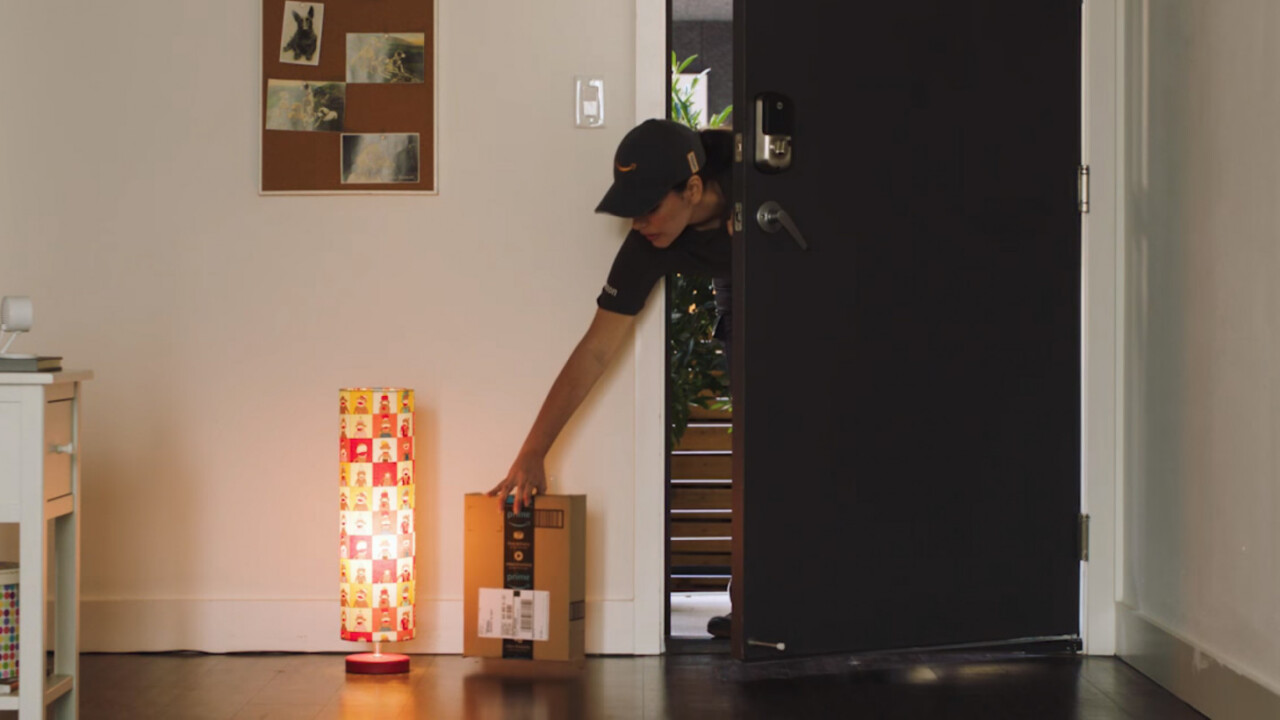Technology has already conditioned us to hand over our data in exchange for better services over the past several years. With Amazon Key, the company is asking for a whole lot more, for just a little more convenience when you shop.
The Key service utilizes a new always-on security camera inside your house and a smart lock on your front door to allow delivery people to enter your home and drop off packages; once they’ve swiped in and out, you’ll receive footage of the drop-off taking place. It’s rolling out to select cities where Amazon’s own logistics personnel operate. Oh, and it also works with the company’s home maintenance and third-party dog walking services while you’re out.
That comes at the cost of not just the $250 for the necessary gadgets, but also the permission to record video footage inside your house, and a digital key to your front door lock. While we’ve increasingly grown used to telling companies more about ourselves at our own risk, this is perhaps the highest level of access any firm has ever asked for. And Amazon is betting that you’ll say yes.
Which leads me to wonder: what’s changed in technology and society that we now need our packages delivered not at our doorstep, but past our thresholds?

The necessary tech has certainly been developed and evolved to the point where Amazon can say with a high degree of certainty that its Key delivery system works: cloud infrastructure, video hardware and personal devices are now sophisticated enough to allow the company to fit these pieces together to dream up this solution.
Amazon is also sure that its networks are secure enough to handle any hacker that might want to worm their way in and figure out ways to gain entry into customers’ homes – or at the very least, tap into their camera feeds.
Amazon thinks this is a good idea in 2017, and that the numbers make enough sense for Key to work in its favor – in spite of the fact that it’s developing delivery drones for short distances, set up convenient pickup points in several cities, and automating package handling in its warehouses with robots.
It believes that it still needs something like Key to better serve some of its customers, and that other potential, yet unrevolutionary solutions – like letting you specify a delivery time that works for you – won’t cut it. Of course, it also believes that people in America are okay with letting strangers into their home, simply so they don’t miss a delivery window.
When did this shift in mindset and priorities take place? I don’t mean to judge; I simply feel out of the loop. Am I being crazy for not wanting strangers in my home when I’m out? Have we really come that far already?
It’s clear that we don’t care about much about the privacy of our data anymore – but are we really at the point where we no longer care about the privacy of our personal space?
Welcome to the future, I guess.
Get the TNW newsletter
Get the most important tech news in your inbox each week.






